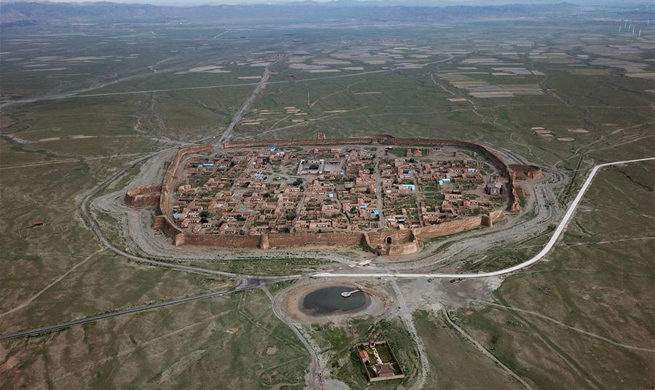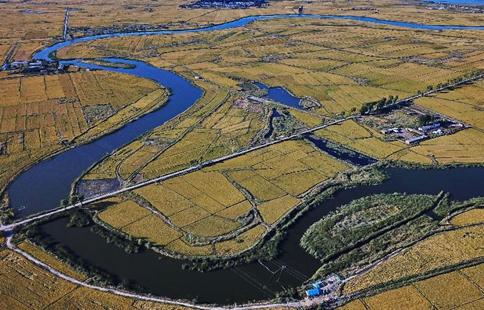TALLINN, Sept. 15 (Xinhua) -- The Organization for Economic Co-operation and Development (OECD) sees the Estonian economic outlook as "improving" and expects the country to make growth stronger, greener and more inclusive.
Presenting the latest OECD Economic Survey of Estonia, OECD Secretary-General Angel Gurria said that OECD recognizes the "numerous strength" of the Estonian economy, listing Estonia's excellent business environment, strong initial education, innovative information and communication technology sector and very solid public finances.
"Estonia has made great strides in increasing incomes and well-being, largely through sound macroeconomic policies and open, outward-looking engagement with the world economy," said Gurria, who was scheduled to join the second day of the informal meeting of the EU economic and finance ministers on Saturday.
The survey forecasts the Estonian economy to grow by more than 4 percent this year, laying out a range of policy options for renewing the growth drivers across the economy and reducing poverty and inequalities.
Speaking at the joint press conference, Jevgeni Ossinovski, Estonian Minister for Health and Labour, said that Estonia agrees with the OECD on the point that Estonia needs a balanced economy, exploring better method to reduce poverty and inequalities, as well as income gap.
Sustained economic and social progress will hinge on renewed efforts to reduce inequality and poverty (at 15.5 percent, compared to OECD average of 11.5 percent). An adequate social safety net should be implemented, including increased spending on subsistence benefits, relaxed eligibility conditions for unemployment benefits, extended parental leave for fathers and new obligations on employers to reduce occupational health and safety risks, says the survey.
Given Estonia's prudent fiscal policy, public debt is the lowest in the 35-member OECD at around 10 percent of GDP (EU Maastricht definition), the Survey sees "fiscal space" for greater public investment to boost growth potential and make it both greener and more inclusive.
There is also scope for making the tax-benefit system more redistributive and setting tax rates on oil shale, vehicle and energy use at levels that better reflect the environmental damages generated, says the survey.
The Survey focuses on key channels for fostering long-term growth and inclusiveness, including raising investment, further integrating into global trade and easing labour-market bottlenecks.
Estonia should prioritise policies to address the growing skills shortage, including a greater focus on the quality of and participation in adult education; more attention to child care services and the sharing of childcare duties between men and women in order to ensure that women have equal opportunities in the work force; and improving the country's attractiveness for skilled migrants, according to the survey.
Actions to improve the business environment, such as completion of work on a "one-stop shop" for administrative formalities, creation of a centralized credit bureau with positive and negative information on creditors, reforming insolvency regime and better cooperation mechanisms between public sector research and development institutions and the private sector, would improve incentives to both trade and investment, it concludes.
In December 2010, Estonia became a member of the OECD, which currently has 35 member countries.

















